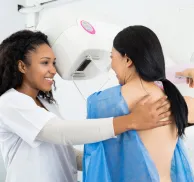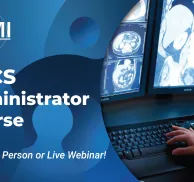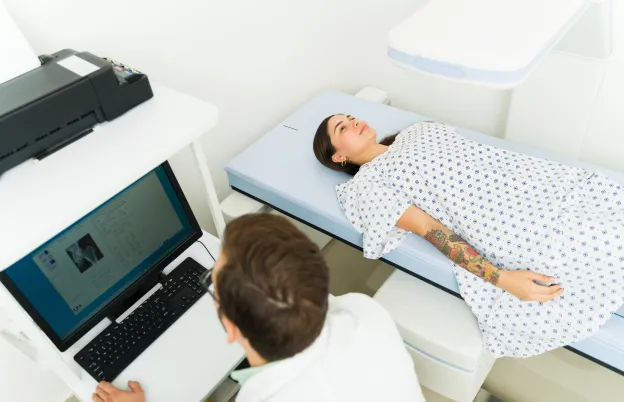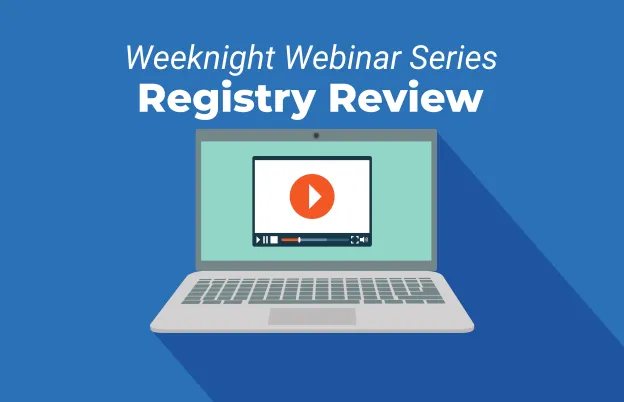
Patient Care with Advances in DXA Scanning
About this Program
In this course, participants will learn the reasons for DXA scanning with the latest information on osteoporosis. You will be able to identify and discuss the reasons for, and new advances in DXA scanning, as well as other uses for DXA scanning. You will be able to relay special emphasis on bone health for patients due to COVID-19 impact. You will be able to better discuss this updated information with your patients such as radiation effects, exam purposes, and COVID-19 effects on bones.
Educational Objectives
At the conclusion of this course, attendees will be able to:
- Define DXA
- Discuss QCT vs DXA
- Discuss the radiation exposure to patients
- Identify and discuss osteoporosis facts and myths
- Identify and discuss scanning protocols for osteoporosis
- Discuss and identify other reasons for DXA scans
- Discuss and identify explanations for the patient
- Identify and explain advancement in DXA scanning
- Understand how the advancements impact training in radiology and professional development goals and patient scanning
Schedule
What this course will cover
8:00 – 8:50 am
1. Definition and Purpose of DEXA scans:
a. How does a DXA scan work?
b. What is the difference between a DXA scan and QCT?
c. What is the radiation exposure of a DXA scan? How would you discuss this with
concerned patients?
d. How will this radiation affect the patient?
e. Are DXA scans necessary?
f. Scanning the forearm…. why and is this just as accurate?
8:50 – 9:40 am
2. What is the purpose of x-rays of the hip and femur before a DXA scan?
9:40 – 9:50 am - Break
9:50 am – 10:40 am
3. Definition of Osteoporosis:
a. Most common reason for DXA scanning.
b. How does it show osteoporosis?
c. Causes of osteoporosis?
d. Does the radiation from the scan affect the osteoporosis?
10:40 am – 11:30 am
4. Advances in scanning:
a. Monitor and diagnose other illnesses and effects of those illnesses on bone health
11:30 am –12:00 pm - Lunch Break
12:00 pm – 12:50 pm
5. Other Reasons for DXA scans:
a. obesity treatments
b. osteoarthritis treatments
c. Cancer, effects of cancer treatment on bone health
d. kidney disease
e. non-compliance with medical therapy
f. Use of steroids and other medications affecting bone health
12:50 pm – 1:40 pm
6. DXA scanning of children and young adults:
a. The effects of treatment on bones for scoliosis
1:40 pm – 1:50 pm - Break
1:50 pm – 2:40 pm
7. DXA scan errors, effects of medication prior to exam:
a. patient medication
b. vitamins such as calcium
c. barium or other contrast procedures
d. spinal and hip hardware
2:40 pm – 3:30 pm
8. DXA scanning in the COVID-19 environment:
a. How frequent should DXA scans be ordered?
b. A question of a rise in declining bone health due to being sedentary as well as access to
medication being more difficult.
Audience
Who should attend?
Anyone practicing in the field of bone densitometry.
RT’s interested in learning more about bone densitometry.
Program Faculty
Meet your presenter(s)

Beth Cesnaitis
MSRS, R (RT)(CT)(M)(BD)
Beth has been in the medical imaging profession for over 25 years as an educator as well as having practiced general radiography, computed tomography, mammography, and bone densitometry. Currently she is a Limited Medical Radiologic Technology educator with the College of Healthcare Professions. Prior to that, she was an educator for the Baptist Health System School of Health Professions for the AAS RT program, computed tomography certification program, as well as clinical instruction for CT, and radiography. She was instrumental in developing and implementing their online track for the AAS RT program.
Credits
Accredited training programs
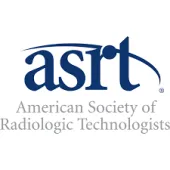
ASRT Category A
This program provides 8 hour(s) of Category A continuing education credit for radiologic technologists approved by ASRT and recognized by the ARRT® and various licensure states. Category A credit is also recognized for CE credit in Canada. You must attend the entire program to receive your certificate of completion.
Tuition

| Audience | Price | Early Price | Member Price | Member Early Price |
|---|---|---|---|---|
| Technologist | $199.00 | $189.00 | $179.00 | $170.00 |
Early Pricing Guidelines
Qualifying 'Early' registrations must be made at least 14 days in advance for the program.
Cancellation Policy
Seminars/Webinars 8 hours of credit or more
Refunds, minus a $30 processing fee, will be granted for cancellations received at least 3 days prior to the program. Cancellations received within 3 days of the program will receive a credit toward a future MTMI program, minus the $30 processing fee. No refunds will be made after the program starts. MTMI reserves the right to cancel any scheduled program because of low advance registration or other reasons. MTMI’s liability is limited to a refund of any program tuition paid. MTMI recommends that attendees use refundable airline tickets. In case of cancellation of a program for any reason, MTMI is not responsible for travel costs incurred by attendees including non-refundable airline tickets. When offered, WEBINAR ATTENDEES that cannot log in due to unsolvable technical issues beyond their control will be eligible for a full refund.
